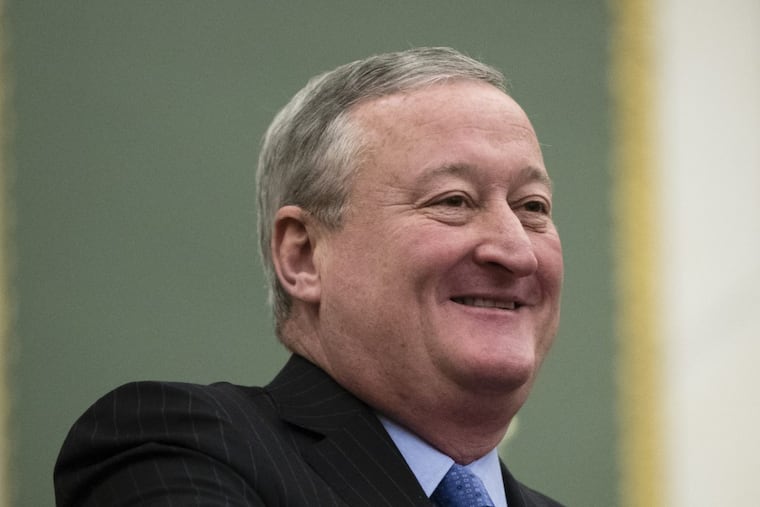Mayor Kenney's plan to save Philly schools: Surprising and gutsy | Editorial
The city is generally adept at solving a range of problems. We should be able to solve this one, too.

At the end of the day, Philadelphia schools belong to Philadelphians. That's why we applaud Mayor Kenney for his courageous move to take back the schools from state control.
And make no mistake: It is courageous. For the last 16 years, mayors have been able to operate free from accountability for the performance of the city's school system. State control allowed the city's leaders to point elsewhere every time the School District faced yet another crisis. And it gave the rest of us a convenient and distant enemy to blame for our schools, and the problems that result from underfunding them.
Not that the state didn't deserve enmity: The takeover in 2001 gave a temporary reprieve to a fiscal crisis, but the state went on to make decisions that undermined education, in direct budget cuts and questionable policies. And though no one could accuse SRC members of not being dedicated, they had no power to get more money. In the end, the SCR's existence made it easy for everyone else to hide in the shadows.
So now Kenney has stepped into the light and said he is responsible. (Remarkably, he actually used those words: "I am responsible.") That includes financial responsibility, with a commitment to cover a current $103 million deficit – $1 billion over five years. Here's what gives us confidence that this is the right move:
It forces a change in mind-set: Whether or not it's true, the victim/dependent mind-set that came about with state control is unbecoming to a city of our size. It's also not necessary. The city is generally adept at solving a range of problems — many as well as or better than any city in the country. We should be able to solve this one, too. For example, Kenney has said that the schools might benefit from more integration with other branches of city government, like libraries and parks, both of which function at high levels.
This is not an impulsive move: Given how many diverse constituents are on board with this, including lawmakers, City Council, education advocates, and the SRC, which must vote to dissolve itself, it's clear the mayor has been working on this plan for some time, though more formal public input would have been welcome.
The move is also consistent with Kenney's overall commitment to children. He pushed through a wildly unpopular sugary-beverage tax to fund pre-K education.
Research suggests that mayoral-run school systems do better than other types, though Council will also play a role in its eventual ability to approve the nine school board members chosen by the mayor from a list of 27 nominees. There are those who argue for an elected board, but governance structure matters less than adequate resources.
What we don't know is where the money will come from. Kenney is being closed-mouthed about how the city will raise the money — following years of having to raise more and more to supplement state money. Frankly, someone is going to pay: We're betting property owners will be a part of the solution.
Do we really want good schools? Now, the burden of that answer falls not only on the mayor. It falls on all of us.
That's the gutsiest idea yet.